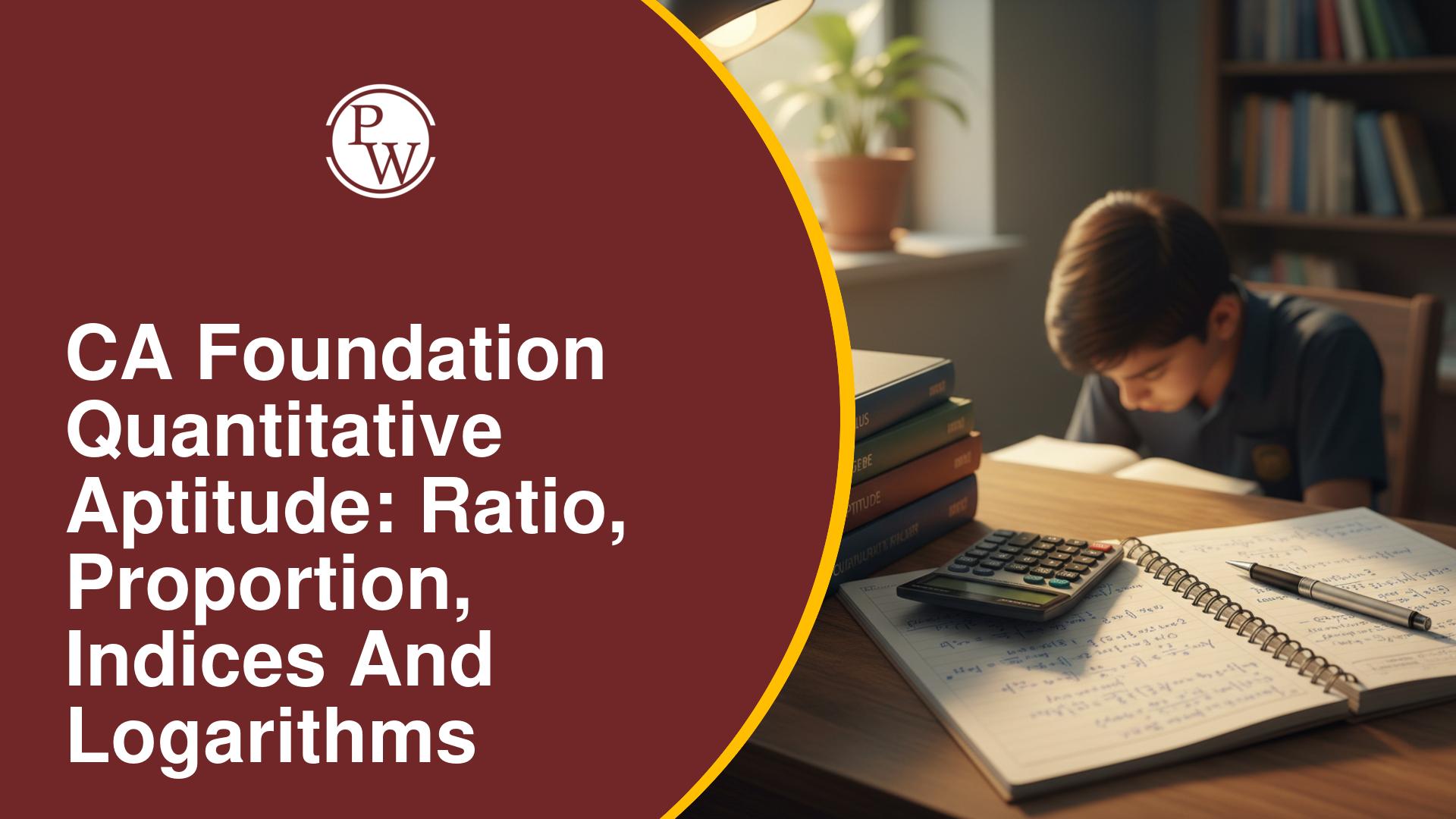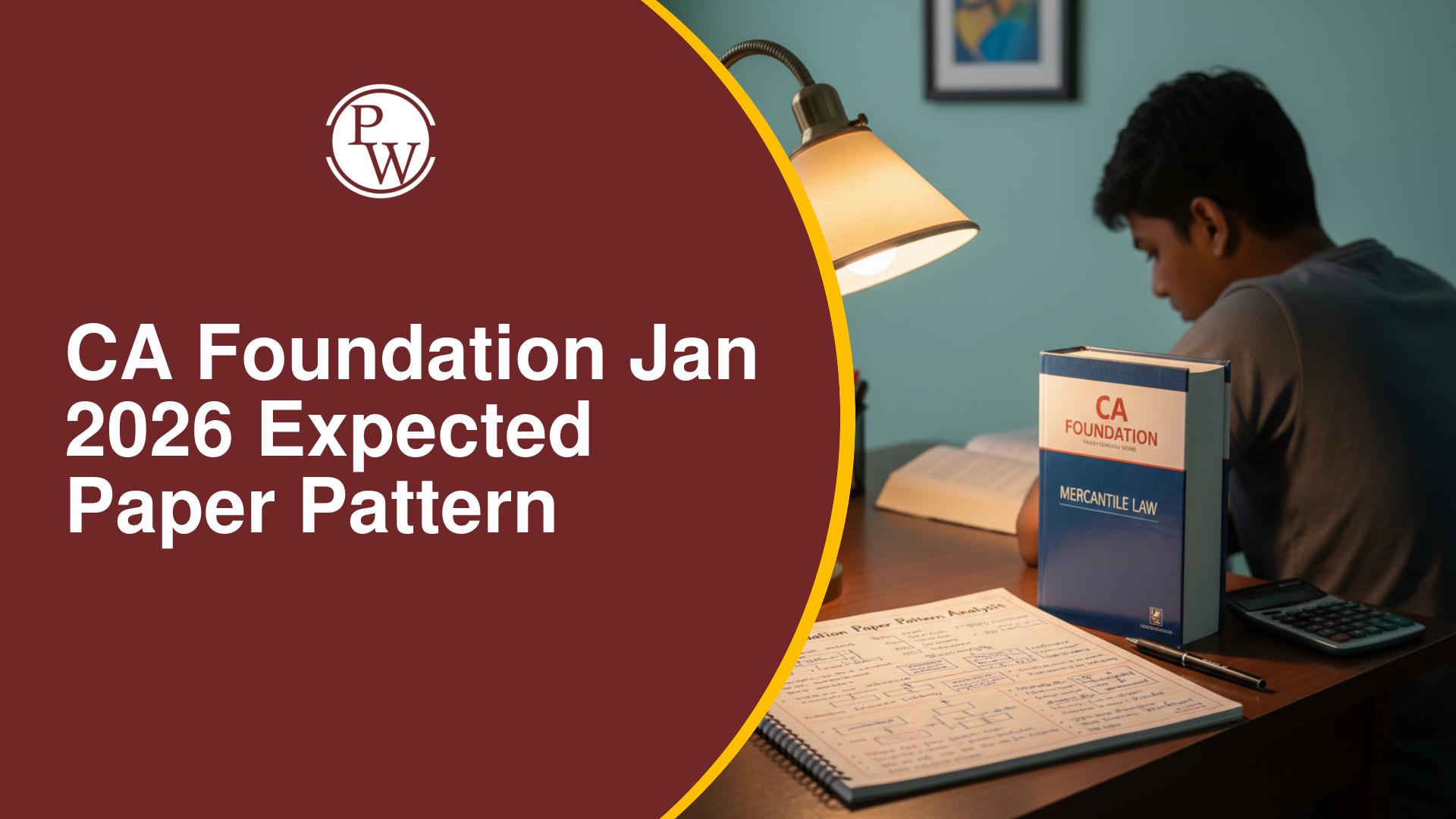
Generally Accepted Accounting Principles ensure that a company's financial reports meet clear and regulated standards. In the United States, these rules are called Generally Accepted Accounting Principles (GAAP or U.S. GAAP). Companies must follow GAAP standards in all financial reports to avoid serious consequences.
This topic will help CA Aspirants effectively prepare for the CA Foundation exam .What Are Generally Accepted Accounting Principles?
The generally accepted accounting principles ( GAAP ) are rules and standards for accounting, regularly updated by the Financial Accounting Standards Board (FASB). US public companies must stick to GAAP when creating their financial statements. GAAP is also common in governmental accounting.Generally Accepted Accounting Principles (GAAP)
GAAP, or Generally Accepted Accounting Principles, is a set of rules and guidelines established by policy boards along with widely accepted practices for recording and reporting financial information. It covers various aspects like recognizing revenue, organizing balance sheets, and determining materiality. The main aim of GAAP is to ensure that a company's financial statements are thorough, consistent, and comparable. This helps investors to easily analyze the statements, including tracking trends over time and comparing them with other companies' financial data. Contrary to GAAP, there's another method called pro forma accounting, which isn't based on these accepted principles. Internationally, GAAP's counterpart is the International Financial Reporting Standards (IFRS), used in 168 countries worldwide. Besides businesses, GAAP is also followed by government entities for their financial statements. In the U.S., all 50 states adhere to GAAP, and many local entities like counties, cities, towns, and school districts also need to comply.GAAP Compliance
When a company's stocks are traded publicly, they must stick to strict financial rules set by the U.S. Securities and Exchange Commission (SEC). These rules require companies to regularly submit financial reports that meet GAAP standards to stay listed on stock exchanges. To ensure compliance, an external audit by a certified public accounting (CPA) firm is conducted. Even though private companies aren't obligated to follow GAAP, it's seen positively by lenders and creditors. Most lenders demand GAAP-compliant financial statements when granting business loans. Consequently, many U.S. companies opt for GAAP standards. Investors should be wary of financial statements not prepared using GAAP. Without Generally Accepted Accounting Principles, comparing financial data across companies, even within the same industry, becomes challenging. Some companies might include both GAAP and non-GAAP measures in their reports. However, GAAP regulations mandate that non-GAAP measures be clearly labeled in financial statements and other public disclosures.Difference Between GAAP and IFRS
The International Financial Reporting Standards (IFRS) and Generally Accepted Accounting Principles (GAAP) are two sets of rules used worldwide for financial reporting. IFRS, managed by the International Accounting Standards Board (IASB), offers an alternative to GAAP and is widely adopted globally. One key difference between GAAP and IFRS lies in inventory accounting. While GAAP permits the use of last-in, first-out (LIFO) method, IFRS prohibits it. Both systems, however, allow for the first-in, first-out (FIFO) method and the weighted average-cost method. Efforts to align IFRS and GAAP have been ongoing since 2002, led by the IASB and the Financial Accounting Standards Board (FASB). In 2007, the SEC eliminated the need for non-U.S. companies listed in the U.S. to reconcile their financial reports with GAAP if they complied with IFRS, marking significant progress in convergence. As businesses expand globally, there's a growing trend towards adopting international standards like IFRS over GAAP, even within the U.S. Nearly all S&P 500 companies included at least one non-GAAP measure in their financial statements by 2019. Given the widespread use of IFRS globally, transitioning to this standard could offer advantages for both international corporations and investors.Principles of GAAP
The foundation of GAAP (Generally Accepted Accounting Principles) is built upon ten key principles. These principles aim to set clear guidelines for how companies report their financial information, ensuring transparency and preventing any manipulation of data or unethical behavior.- Principle of Regularity: Accountants and businesses must always adhere to GAAP when handling financial data. No exceptions are allowed; all regulations must be followed.
- Principle of Consistency: Accountants must use the same standards and practices for all accounting periods. Any changes must be thoroughly documented and explained. This ensures that financial documentation remains consistent over time.
- Principle of Sincerity: Accountants must provide unbiased and accurate financial reports, regardless of the company's financial situation. Transparency is key, even if it reveals unfavorable information.
- Principle of Permanence of Methods: Accountants must use consistent reporting methods across all financial statements. This allows for easy comparison between different companies' reports.
- Principle of Non-Compensation: All financial values, positive or negative, must be clearly reported without attempts to offset one against the other.
- Principle of Prudence: Financial data must be based on concrete numbers, avoiding speculation or forecasts in formal financial statements.
- Principle of Continuity: Accountants must assume the company will continue to operate when compiling reports.
- Principle of Periodicity: Financial information should only be reported for the relevant accounting period to prevent manipulation of data over time.
- Principle of Materiality: Accountants must disclose all relevant financial data to the best of their abilities, ensuring transparency.
- Principle of Utmost Good Faith: Anyone involved in financial matters must act honestly and ethically in all transactions and reporting.
Generally Accepted Accounting Principles FAQs
What is GAAP and why is it important?
GAAP, or Generally Accepted Accounting Principles, are rules and standards for financial reporting. They ensure transparency, consistency, and comparability in financial statements, crucial for investors and stakeholders to make informed decisions.
How does GAAP differ from IFRS?
GAAP and IFRS (International Financial Reporting Standards) are two sets of accounting principles used globally. While both aim for financial transparency, they have differences in areas like inventory accounting methods, with GAAP allowing LIFO (last-in, first-out) whereas IFRS prohibits it.
Who needs to follow GAAP standards?
Public companies in the United States are required to follow GAAP standards for financial reporting. Additionally, many private companies choose to adhere to GAAP for credibility and transparency.
What are the principles of GAAP?
The principles of GAAP include Regularity, Consistency, Sincerity, Permanence of Methods, Non-Compensation, Prudence, Continuity, Periodicity, Materiality, and Utmost Good Faith. These principles guide the preparation of financial statements to ensure accuracy and reliability.
How does GAAP compliance affect financial reporting?
GAAP compliance ensures that financial reports meet standardized guidelines, enhancing their credibility and comparability. Non-compliance can result in penalties, loss of investor trust, and even delisting from stock exchanges for publicly traded companies.
🔥 Trending Blogs
Talk to a counsellorHave doubts? Our support team will be happy to assist you!

Check out these Related Articles
Free Learning Resources
PW Books
Notes (Class 10-12)
PW Study Materials
Notes (Class 6-9)
Ncert Solutions
Govt Exams
Class 6th to 12th Online Courses
Govt Job Exams Courses
UPSC Coaching
Defence Exam Coaching
Gate Exam Coaching
Other Exams
Know about Physics Wallah
Physics Wallah is an Indian edtech platform that provides accessible & comprehensive learning experiences to students from Class 6th to postgraduate level. We also provide extensive NCERT solutions, sample paper, NEET, JEE Mains, BITSAT previous year papers & more such resources to students. Physics Wallah also caters to over 3.5 million registered students and over 78 lakh+ Youtube subscribers with 4.8 rating on its app.
We Stand Out because
We provide students with intensive courses with India’s qualified & experienced faculties & mentors. PW strives to make the learning experience comprehensive and accessible for students of all sections of society. We believe in empowering every single student who couldn't dream of a good career in engineering and medical field earlier.
Our Key Focus Areas
Physics Wallah's main focus is to make the learning experience as economical as possible for all students. With our affordable courses like Lakshya, Udaan and Arjuna and many others, we have been able to provide a platform for lakhs of aspirants. From providing Chemistry, Maths, Physics formula to giving e-books of eminent authors like RD Sharma, RS Aggarwal and Lakhmir Singh, PW focuses on every single student's need for preparation.
What Makes Us Different
Physics Wallah strives to develop a comprehensive pedagogical structure for students, where they get a state-of-the-art learning experience with study material and resources. Apart from catering students preparing for JEE Mains and NEET, PW also provides study material for each state board like Uttar Pradesh, Bihar, and others
Copyright © 2026 Physicswallah Limited All rights reserved.









